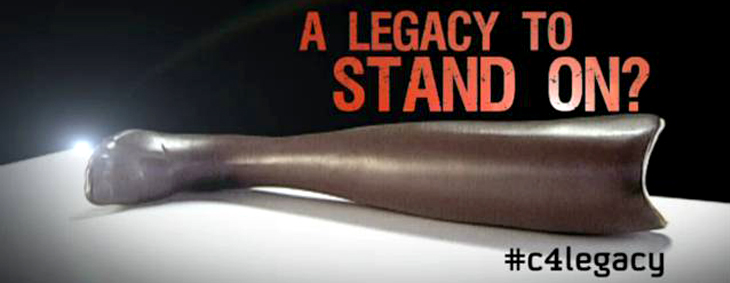Disability hate crime: Five years on from Fiona Pilkington
Five years on from the tragic deaths of Fiona Pilkington and her daughter Francecca Hardwick, Mencap’s chief executive looks at tackling disability hate crime, as part of a Channel 4 News series.

Channel 4 News last night marked the eve of the fifth anniversary of the tragic deaths of Fiona Pilkington and her daughter Francecca Hardwick. Sadly, the report highlighted the ongoing harassment and abuse that many disabled people continue to face even today, writes Mark Goldring, chief executive of learning disability charity Mencap.
Back in 1999, Mencap published our first report on the issue of hate crime, Living in fear. The report exposed a truly disturbing picture of the lives of people with a learning disability: nearly 9 in 10 of those surveyed had been bullied in the past year, almost half of respondents had been verbally abused and almost a quarter had been physically assaulted. For many, this bullying was taking place on a daily or weekly basis.
The term “hate crime” was not used in Living in fear because disability hate crime did not exist in law until the Criminal Justice Act of 2003. However, the message was clear: people with a learning disability are too often lifelong victims of bullying, and this bullying can have cumulative and devastating effects.
In reality the annual number of disability hate crimes is likely to be in the tens of thousands.
Sadly this message was not heard until the tragic deaths of Francecca Hardwick and her mother Fiona Pilkington in 2007, which only reached the public domain in 2009, when the inquest found that police errors and inaction were partly responsible for their deaths.
Francecca and Fiona had been victims of seven years of verbal abuse and harassment from young people who lived in their area, including having stones thrown and bottles smashed outside their home and taunts and insults shouted at them.
The torment finally drove Fiona to take her life and that of Francecca’s in October 2007. This was exactly the sort of situation Mencap had warned about almost a decade earlier.
What has changed?
Today, five years on from the deaths of Francecca and Fiona, what has changed?
I believe the tragedy will galvanise the police, and other authorities, to tackle disability hate crime in the same way the murder of Stephen Lawrence did for race hate crime. It is a sad reality that it takes such a high-profile case to shine a spotlight on an issue that demands such urgent action, but as a result of Francecca and Fiona’s deaths more and more police forces are improving the way they identify disability hate crime, share and record information on incidents and calls, and communicate with victims.

Mencap launched the “Stand by me” campaign to end disability hate crime in 2011, and to date, 37 out of the 44 police forces in England, Wales and Northern Ireland have signed up to a ten-pledge police promise. While we still have a long way to go, some of the issues are being addressed. For example, between 2009 and 2011, the recording of disability hate crime incidents by police has increased by 49 per cent, from 1,402 to 2,095. This is very likely the result of improvements by the police, and increased willingness by victims to report incidents.
While we believe that the recorded figures are just scratching the surface of the problem – in reality the annual number of disability hate crimes is more likely to be in the tens of thousands – it is an important start. High profile tragedies make headlines, but it is imperative that the daily turmoil that many people with a learning disability face is also captured by official data.
Today, the Equality and Human Rights Commission publishes its final recommendations into disability-related harassment, which was launched in 2011. I have no doubt these will lead to further positive changes. Disability organisations like Mencap, and police forces across the country, will continue to work hard to keep the issue in the spotlight, and increase reporting and convictions, to try to ensure that we never see a repeat of Francecca and Fiona’s deaths.
For more information on Mencap’s Stand by me campaign against disability hate crime, click here.




